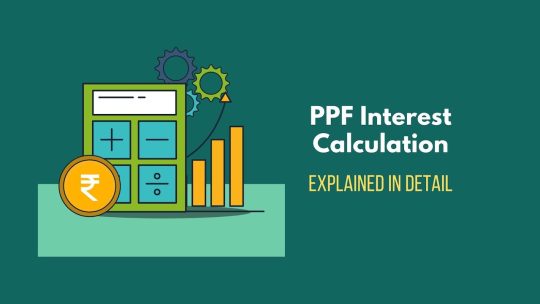Both FDs and Mutual Funds have been quite popular investment choices among investors. However, they both provide different benefits and have to be chosen carefully depending on your investment needs when you are a new investor. To make the process simple and easy for you we have prepared this extensive comparison. So, let’s begin with FD vs Mutual Funds.
What is a fixed deposit?
The fixed deposit allows you to invest your funds for a fixed term and earn returns at a fixed interest rate. The interest rate on your FD is higher than a savings account, so you can grow your savings furthermore. This does not involve the pooling of money by a group of investors, and the interest is decided before you invest, so the interest remains unaffected by the external market influences. At the end of the tenure, you receive the amount you have invested plus compound interest. FDs are also called term deposits. All banks offer fixed deposits at different rates. Opening a fixed deposit is extremely simple and can be done both online and offline.
What are mutual funds?
A mutual fund is a kind of investment that uses money from investors to invest in stocks, bonds, equities, and other market-linked instruments or securities. Several investors come together and invest in mutual funds. They have a common goal for increasing their savings. The total income earned through these investments is then, equally distributed among investors, after deducting the expenses incurred. Mutual funds are usually “open-ended”, meaning that new investors can join the fund at any time. When this happens, new units, which are like shares, are given to the new investors. The capital gain on a Mutual Fund scheme depends on the performance of the securities it decides to buy. The market condition is also a factor that determines the value of the particular security purchased.
Benefits of investing in fixed deposits
Several people consider fixed deposits as the best investment option and invest a significant portion of their savings in this instrument. Below mentioned are some of the benefits of investing in fixed deposits.
- Assured rate of return
Fixed deposits provide assured return rates. Once you invest your funds in a fixed deposit account, you can be guaranteed of receiving the stated rate of return.
- The tax threshold for interest
Banks are not mandated to deduct tax on any interest until it crosses Rs. 10,000. This means unless the total interest earned by a customer on different fixed deposits totals Rs. 10,000, the bank will not deduct any tax. This provides comfort to small deposit holders.
- Flexible tenure
The tenure for a fixed deposit is flexible and depends on the deposit holder. Each bank has its own minimum tenure rules however, the final decision can be taken by the deposit holder. It is also possible to decide whether to redeem the fixed deposit or to extend it for the same period.
- Easy liquidation
It is relatively easy to liquidate a fixed deposit. For FDs booked online, they can be liquidated online via net banking as well. Otherwise, most bank branches have a form to liquidate the FD.
- Loans against fixed deposit
An FD is a dependable instrument to keep in case of financial emergencies. Taking a loan against a fixed deposit is very easy. You can take a loan up to 95% of the fixed deposit amount depending on the bank. This makes it a dependable investment.
Benefits of investing in mutual funds
Mutual Funds can be a higher-risk investment but the returns are generally greater than in any other investment plan. Mutual funds provide the following benefits.
- Liquidity
Investors can redeem the units at any point in time. Unlike Fixed Deposits, Mutual Funds have flexible withdrawal but factors like the pre-exit penalty and exit load should be taken into consideration.
- Diversification
Diversification reduces the risk involved in building a portfolio thereby further reducing the risk for an investor. As Mutual Funds consist of many securities, investor’s interests are safeguarded if there is a downfall in other securities so purchased.
- Flexibility to invest in Smaller Amounts
Mutual Funds most important benefit is their flexible nature. Investors need not put in a huge amount of money to invest in a Mutual Fund. Investment can be as per the cash flow position.
- Accessibility
Mutual Funds are easily accessible and you can start investing and buy mutual funds from anywhere in the world.
- Schemes for Every Financial Goals
The best part of the Mutual Fund is the minimum amount of investment can be Rs. 500. And the maximum can go up to whatever an investor wishes to invest.
- Lower cost
In a Mutual Fund, funds are collected from many investors, and then the same is used to purchase securities. These funds are however invested in assets which therefore helps one save on transaction and other costs as compared to a single transaction. The savings are passed on to the investors as lower costs of investing in Mutual Funds.
- Lowest Lock-in Period
Tax Saving Mutual Funds have the lowest lock-in periods of only 3 years. This is lower as compared to a maximum of 5 years for other tax-saving options like FD, ULIPs, and PPF.
Difference between fixed deposits and mutual funds
To help you understand the FD vs Mutual Funds in terms of their benefits, here’s a table below:
| Particulars | Fixed Deposit | Mutual Funds |
| Safety | Very safe (subject to the financial strength of the bank). | Mutual funds are subject to market risks. Different types of schemes have different risk profiles. Invest according to your risk appetite. |
| Liquidity | Medium to Highly liquid. Penalties may apply on premature withdrawals | Open-ended funds are highly liquid. Exit load may apply for withdrawals within a certain period from the date of investment |
| Returns | Assured returns | Market linked. Historical returns track record of top-performing funds across categories is strong |
| Taxation | As per the income tax slab of investors | Long-term capital gains tax advantage. If you compare debt fund vs fixed deposit, Indexation benefits in debt funds make it more tax-friendly for investors in higher income tax slabs |
| Investor interest protection | Regulated by RBI | Regulated by SEBI |
| Impact of market fluctuation | Returns remain unaffected by market forces | Returns may move up and down, as per market movements |
| Expenses | No additional expenses throughout initiation or tenor of the deposit | Managing mutual funds carries certain charges, deducted for fund management |
| Withdrawal | Easy withdrawal post completion of minimum lock-in period | Any time withdrawal |
Hope you found this FD vs Mutual Funds comparison useful. The choice of whether you want to invest in a mutual fund or a fixed deposit is ultimately dependent on your risk appetite.
Recommended Read: Best tax-free bonds to invest in India







